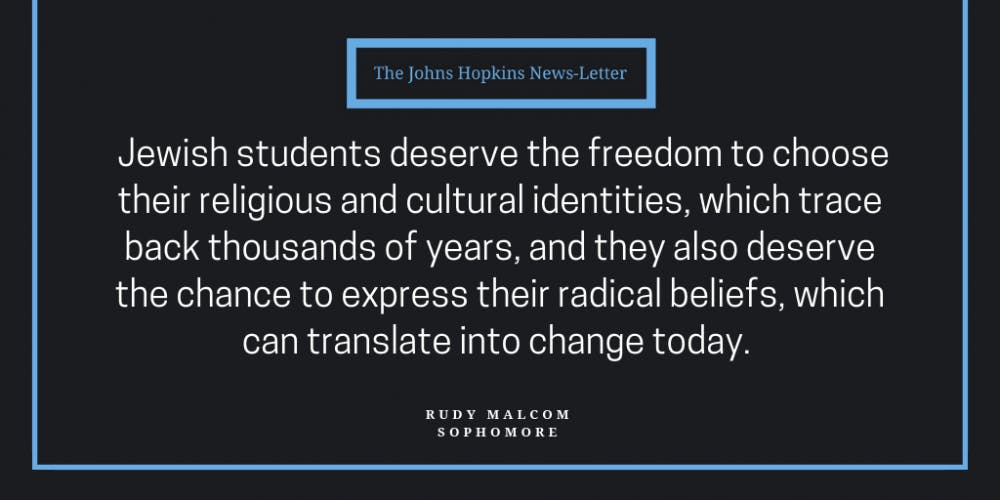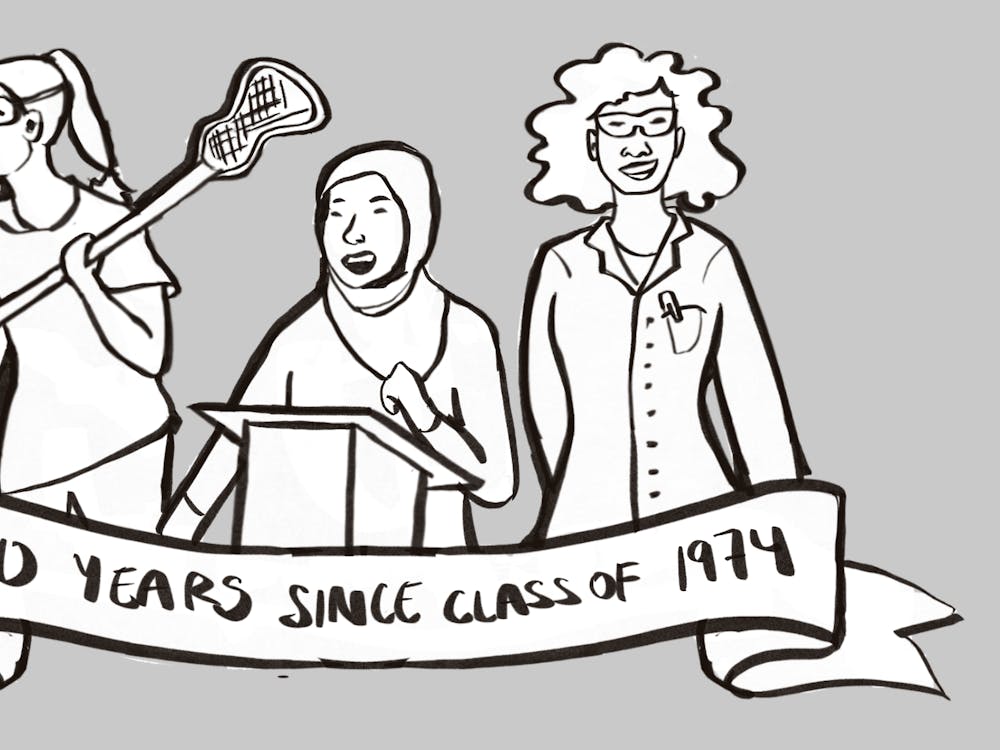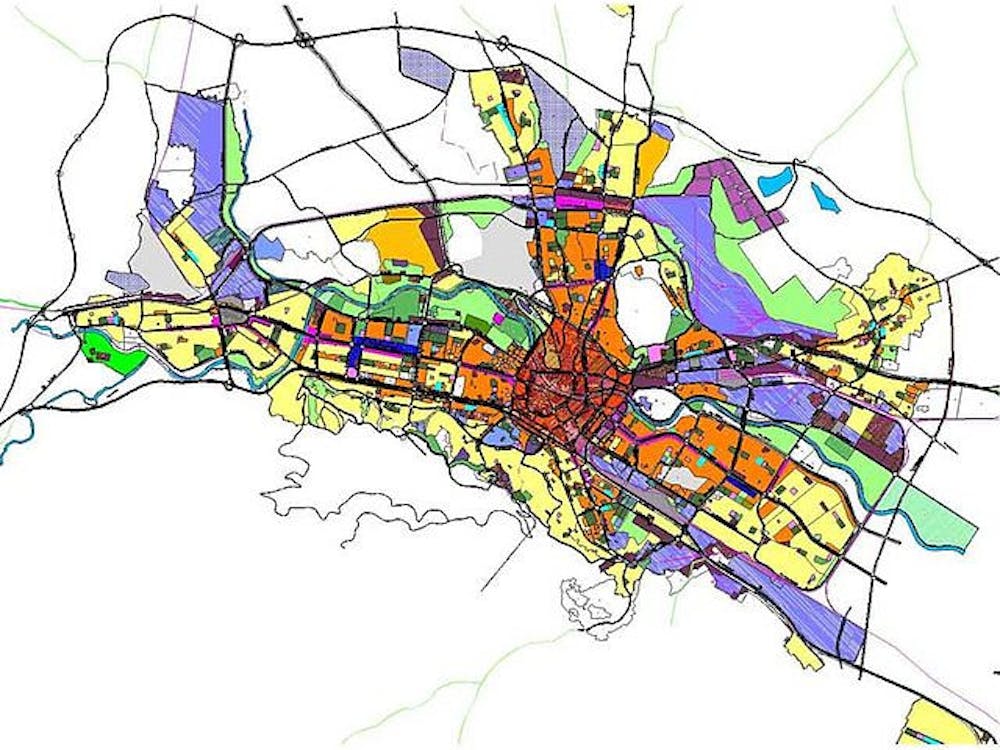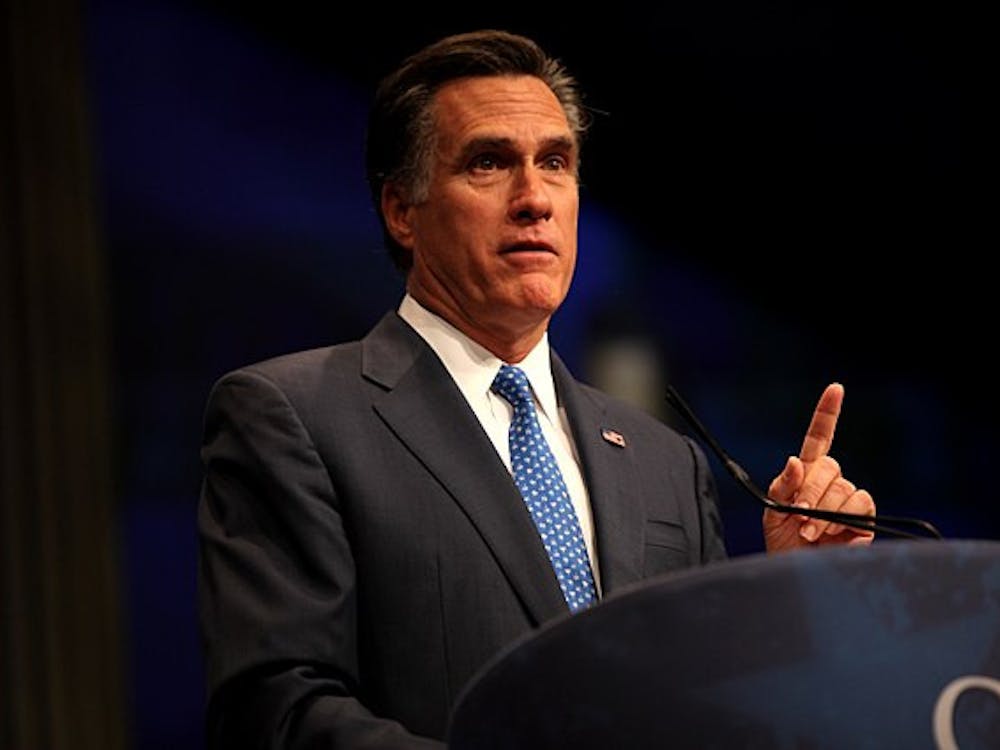Like millions of fellow Jews worldwide, I began celebrating Passover on Friday night. The holiday commemorates the Hebrews’ biblically alleged exodus from Egypt into present-day Israel.
When I was growing up, several Jewish friends of mine told me that Passover — with its abundance of matzo — was the only time of the year that they ever thought about being Jewish.
And lately I, too, have been thinking more about what it means to Jewish. A couple weeks ago, Garland Hall protesters hosted a day-long “teach-in.” On Facebook, I read through a schedule of talks from various groups, including the Diverse Sexuality and Gender Alliance and the Black Student Union.
The title of the event at 3:00 p.m., however, made me uncomfortable: “You can’t be Radical without being anti-Zionist,” led by the student group Students for Justice in Palestine (SJP). The implied subtext was that you can’t be radical unless you oppose Jewish national self-determination.
Let me be clear about two things. One, I do not profess to be a well-versed scholar on the Israeli-Palestinian conflict, but I do support a two-state solution. Jews and Palestinians should get to have their respective slices of holy cake and eat them too.
Two, I don’t think that anti-Zionism inherently equals anti-Semitism. Sure, many anti-Zionists are no doubt anti-Semitic, but I think that characterizing all anti-Zionists as anti-Semitic is reductive.
The purpose of SJP at Hopkins, as explained on their Campus Labs page, is “to draw awareness to the plight of the Palestinian people under Israeli occupation.” They have every right to do that, and I’m glad they are exercising that right. Palestinian voices need representation. I’m also glad that one of their bylaws stipulates that “anti-Semitism or any form of racism has no place in this organization.”
In addition, Garland protesters’ community agreements describe the space as “against anti-semitism.” But they also describe it, among other things, as “anti-Zionist.”
The apparent intersectionality between SJP and Students Against Private Police (SAPP) and Hopkins Coalition Against ICE (HCAI) is somewhat unnerving. To be fair, it isn’t completely surprising. On March 29, SJP erected a mock “apartheid wall” at the Beach. Palestinians call the separation barrier in the West Bank racial segregation, whereas Israel regards it as a safeguard against terrorism. Members of SAPP stood in solidarity, likening the racism of the separation wall to that of the proposed private police force.
This parallel makes sense to me, and I empathize with Palestinian victims. But when protesters at Garland featured an event led by a group who has a “policy of non-engagement with Zionists,” I felt uneasy. (SJP maintains that “in any situation, Zionists are the oppressors and Palestinians are the victims.”)
I feared being unwelcome at an event excluding Zionists because I support the Jewish people’s return to Israel after millennia of persecution and diaspora. Why should someone’s opinion of the Israeli-Palestinian conflict prevent them from joining progressive activists in criticizing the proposed private police force or the University’s contracts with Immigrations and Custom Enforcement?
At first, I was determined to attend the event anyway. I even brought a water bottle labeled “Hillel International.” On the way to Garland, however, I turned around. I feared being unwelcome at an event because I was Jewish.
Again, anti-Zionism isn’t anti-Semitic. SJP and SAPP aren’t anti-Semitic either. But “you can’t be Radical without being anti-Zionist” felt subtly anti-Semitic.
I don’t know how many Jews on campus knew about SJP’s talk at the sit-in, or that protesters have declared Garland an anti-Zionist space. But I know I’m not the only Jew in this country feeling some tension between being a progressive and being a Jew.
Batya Ungar-Sargon, the Opinions Editor of the prominent Jewish-American publication The Forward, declared in March that “the progressive left.... is asking Jews to choose between our progressive values or ourselves.” She was citing New York Representative Alexandria Ocasio-Cortez and Women’s March 2017 co-founder Linda Sarsour’s criticism of House Democrats’ announcement that they’d bring forward a resolution against anti-Semitism. The resolution was written in light of tweets by Minnesota Congresswoman Ilhan Omar (“it’s all about the Benjamins baby,” for example) that many found anti-Semitic.
“Ocasio-Cortez, like Sarsour, has bought into the notion... that it’s Jewish safety or Muslim safety; Jewish self-determination or Palestinian self-determination,” Ungar-Sargon wrote. The Israeli-Palestinian conflict, she continued, shouldn’t be a “zero-sum game.”
Vox prophesied earlier this month that Israel will “arguably be the most important foreign policy of the primaries,” noting that “poll after poll has shown that liberal Democratic primary voters are less sympathetic to Israel than they were in years past.”
Why now? In February, Politico reported that “with an energized progressive base increasingly supportive of Palestinian rights” and a president whose policy decisions are unprecedentedly pro-Israel, Democrats are reconsidering their “once-reflexive support for Israel.”
Trump went so far as to tweet in March that “Republicans are waiting with open arms” for Jews fleeing the Democratic Party.
The co-founder of Vox, Matt Yglesias, called it a “fake departure.” He admitted that being a Jew doesn’t predict being a Democrat as well as it used to, but ultimately averred that, though American Jews generally support Israel, most value a multicultural, “pluralistic vision” of the U.S. more.
Regardless of whether the Jews’ latest exodus — from blue to red — is fact or fiction, progressive activists on campus should ensure that they aren’t ostracizing Jewish students. Jewish students deserve the freedom to choose their religious and cultural identities, which trace back thousands of years, and they also deserve the chance to express their radical beliefs, which can translate into change today.
Rudy Malcom is a sophomore double-majoring in Writing Seminars and Psychology from Port Washington, N.Y. He is a Magazine Editor.























Please note All comments are eligible for publication in The News-Letter.